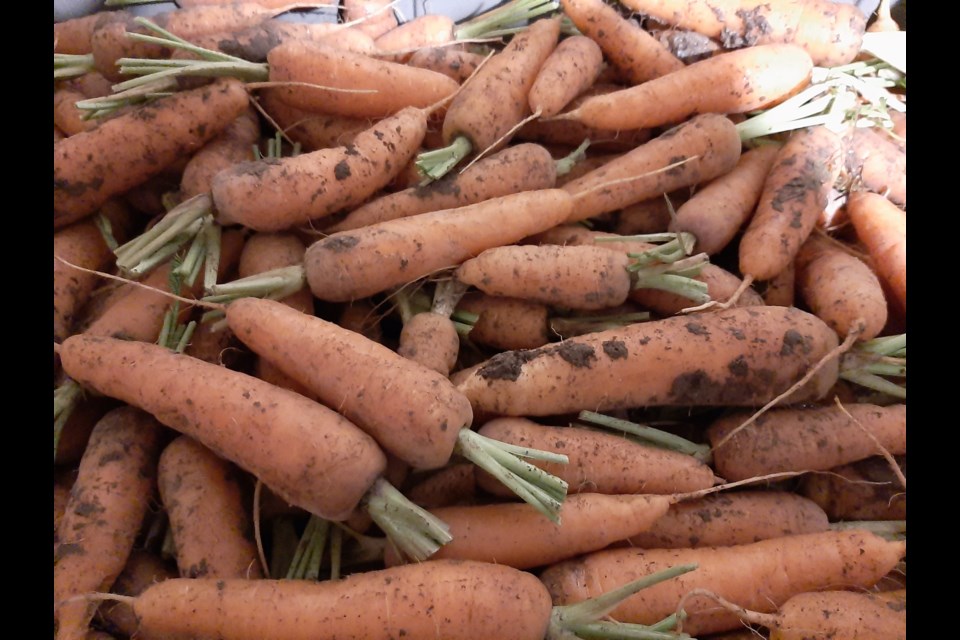Superior Seed Producers, a collective of seed savers, was started almost 10 years ago as part of a national initiative to increase seed security in Canada. Thunder Bay was identified as “seed insecure,” meaning the region did not produce significant amounts of seeds locally. The Bauta Family Initiative on Canadian Seed Security reached out to a few existing seed savers and encouraged them to save more seeds and share them with the public.
Today, Superior Seed Producers consist of five core members; Roots to Harvest, two market gardeners, and two backyard gardeners. Evalisa McIllfaterick, owner of Root Cellar Gardens in Gillies Township, is a member. “All of the seeds [sold this year] come from the five of us,” she says.
McIllfaterick saves seeds from vegetables that she grows for her market garden customers. “I pick ones I know my customers like eating,” she explains. Other members have their own criteria, she says, such as “dual purpose crops” - for example, beans that taste good both as green beans and as dried beans, or cucumbers that are good for both pickling and fresh eating. Some seeds are chosen due to popular demand - snap peas, carrots, beets, cherry tomatoes and lettuce always sell out first.
Last year, Superior Seed Producers sold out completely, and members ramped up production for 2021. This year, they have sold about 4,000 packages. A portion of the proceeds goes to Roots to Harvest, which not only produces some of the seeds, but also provides an online platform for selling the seeds.
Seeds grown in our region are important, McIllfaterick explains, because they can be adapted to our conditions. This is particularly true of newer varieties. Recently, McIllfaterick has been cultivating a new kind of spinach called Popeye, from Oregon.
“What’s neat is that there’s still a lot of genetic messiness within them,” she says. When she grows vegetables for seed, she saves seed from the best-performing plants, hoping to select desirable traits. “The genetic messiness lets the genes that help it thrive in our climate become dominant,” she explains. Heirloom seeds, on the other hand, have been around for decades, and have less genetic variability, leaving less room for local adaptation.
“My plan is to try a side-by-side comparison with the [original] seeds from Oregon in five years,” she says.
While growing more food locally is important, seed security is even more important, McIllfaterick believes. “If you don’t have the seeds, you can’t grow the food,” she points out. “The vast majority of our seeds, whether you order it from a company in the U.S. or Canada, come from the same four or five places and companies in the world. I believe 75 per cent of the spinach seed sold locally comes from two locations. That’s not great for diversity or security.”
Thunder Bay gardeners can make a difference, though.
“There’s a movement to pledge your seed open-source. You’re welcome to grow [varieties that have been pledged open-source,] save it, try breeding with it. It’s a movement to try to keep biodiversity available to the average person,” McIllfaterick says. Much like open-source software, everyone can use and adapt it for themselves. Even if breeding a new variety of lettuce isn’t your area of interest, you can simply collect seeds for yourself, to sow next year.
Superior Seed Producers host several workshops and events a year, where people can learn more about seed saving. Their website, Facebook and Instagram pages are also a great source of information. “And if somebody has a seed that they’re really excited about, and have been saving for a long time, that’s exactly the kind of thing we want to share with the community through Superior Seed Producers,” she says. “That’s part of how we have the different varieties we have.”



